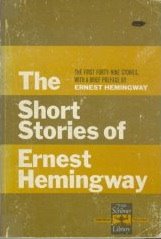 I was really excited to read Cloud Atlas. A couple of blogs I read had recommended it and it was a Finalist for the Man Booker Prize, so it was a shoe-in. I guess I should know by now that there will be disappointment in life. Such is the case with Cloud Atlas.
I was really excited to read Cloud Atlas. A couple of blogs I read had recommended it and it was a Finalist for the Man Booker Prize, so it was a shoe-in. I guess I should know by now that there will be disappointment in life. Such is the case with Cloud Atlas.In theory, the book is beautiful and intriguing. It is made up of six parts, each of which is interrupted halfway by the next and picked up later. It's explained better here, but the best way I can describe it is that it's like Lost without the interesting mythology. Each story is intricately connected to the next, by way of reincarnation, and the stories gravitate between metafiction and self-reflection to near Twilight Zone moments. Each character finds the subsequent story at some point in their own story, and they all have a comet shaped birthmark above their left shoulder.
In execution, though, this neatly packed story within a story within a story does not hold so well. I openly celebrate experimental fiction, but only the more so when it grabs me. A story is a story no matter how you tell it, but a story that's told well is insurpassable.
David Mitchell flourishes in some sections, his writing overtakes the story and it's hard to put down, but that is all overshadowed by a need to outdo himself. But instead of succeeding, it ends up looking like some three year old's stomping fit. "Look at me! Look at me!" I feel more comfortable putting him in time-out.
For what it is, Cloud Atlas is different, and I will read more David Mitchell, because his ideas are intriguing and I'd like to see them fleshed out in a less self-indulgent way. And I did learn several new words, so that's good right? It wasn't a total waste of time then. Reading never is.


No comments:
Post a Comment